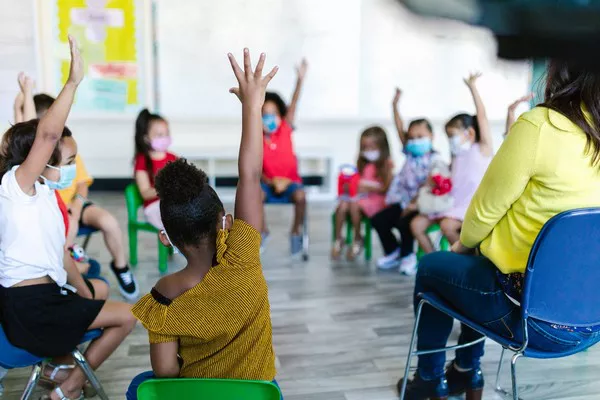In a concerted effort to address the critical need for mental health support among students in Jammu and Kashmir, Munazah Shakeel, a prominent Nguvu Change Leader, has initiated a campaign aimed at prioritizing mental health within educational institutions.
Shakeel emphasizes the misconception that all students possess flawless mental health, highlighting the urgency to acknowledge the grim reality of mental health challenges faced by students. Alarming statistics from the National Crime Records Bureau’s (NCRB) Accidental Deaths & Suicides in India (ADSI) report for the year 2021 reveal that over 13,000 students lost their lives, averaging more than 35 deaths daily. As October marks World Mental Health Month, these figures underscore the significance of addressing mental health issues.
Having personally experienced mental health challenges during her academic journey, Munazah Shakeel underscores the imperative for educational institutions to prioritize mental health. She advocates for the implementation of a robust Standard Operating Procedure (SOP) for mental healthcare, the sensitization of faculty, and the revitalization of Counseling & Guidance Centers.
Acknowledging the positive impact of programs such as Tele Manas Seva, which, according to Union Health Minister Mansukh Mandaviya, has counseled 3.5 lakh people since its launch last year, Shakeel applauds the strides made by the Health Ministry in building a supportive mental health infrastructure. However, she emphasizes the need to reinforce this ecosystem with targeted mental health care for students within educational institutions.
Reflecting on her own near-death experience, Munazah Shakeel asserts, “Students first need access to mental health care in their own schools and colleges.”
Shakeel’s mission to “Make Mental Health Matter” in academic institutions is deeply rooted in her personal journey. She calls upon universities to recognize and address the challenges faced by students, particularly those with disabilities and mental health issues, within an academic system that assumes all students have perfect mental health.
Through a petition, Shakeel urges universities to implement a robust mental health SOP, sensitize faculty and staff to mental health issues, foster an empathetic environment, and strengthen Counseling & Guidance Centers to support student well-being.
“Mental health infrastructure for students in universities is often inadequate, with a scarcity of mental health professionals on campuses. Educational institutions must destigmatize mental health challenges, refrain from judgment and discrimination, and provide a supportive environment where all students feel safe and nurtured,” she emphasizes.




























